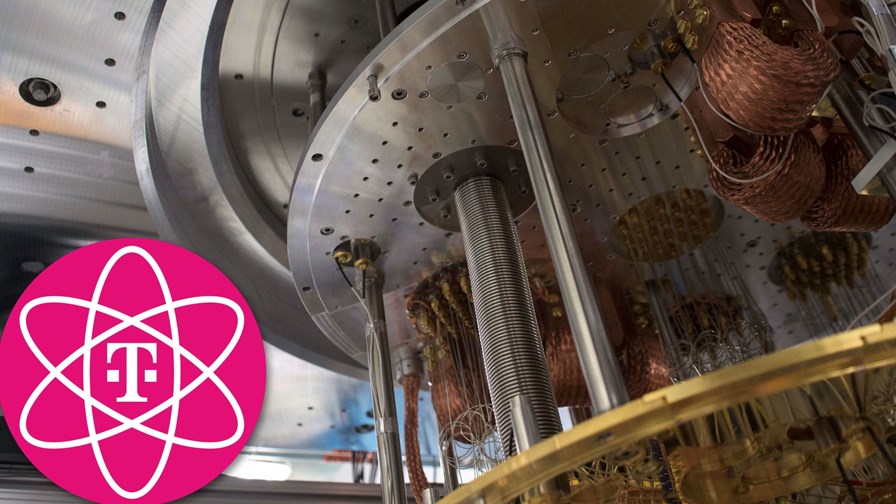
T-Systems to offer access to IBM Quantum computational resources. © IBM
- Europe is a hotbed of quantum computing action right now
- Deutsche Telekom’s T-Systems to offer cloud access to IBM platform
- Euro consortium lands quantum networking funds
Europe is fast becoming a hotbed of quantum computing activity that will boost the region’s secure networking capabilities and give its enterprise users cloud access to quantum computing platforms, with Deutsche Telekom, IBM and Telefónica among the names involved in the latest developments.
Deutsche Telekom’s enterprise services division, T-Systems, is to provide cloud access to IBM’s quantum systems, including “multiple quantum computers powered by the 127-qubit IBM Eagle processor,” noted T-Systems, which also plans to provide quantum consulting and training.
“Customers will have access to T-Systems quantum services tailored to their needs, in a set of different customisable packages,” noted the DT unit, which plans to “develop and test customers’ use cases and prepare them for a future with quantum computing.” The service provider also plans to work with IBM to host its own quantum infrastructure in the future.
Like others, T-Systems is looking to meet the early quantum computing needs of its enterprise customers as soon, and as easily, as possible. “Quantum computing will be central to tomorrow’s IT landscape. We are combining quantum and classical computing in a seamless and scalable customer experience,” stated Adel Al-Saleh, Deutsche Telekom board member and CEO at T-Systems. “Taking these first decisive steps will lower the access barrier to quantum computing,” he added.
That message mirrors that of datacentre operator Equinix, which is developing a quantum computing-as-a-service (QCaaS) offering in partnership with UK company Oxford Quantum Circuits (OQC). The service, which will be made available from one of Equinix’s Tokyo, Japan facilities, will permit companies from around the world to trial and experiment with quantum technology for themselves.
The relationship with IBM is not Deutsche Telekom’s only foray into the quantum world: It was recently handed the lead role in a European Commission project to build a high-security communications network, the European Quantum Communication Infrastructure (EuroQCI), that will be designed to protect the European Union (EU) against cyberattacks in the upcoming era of quantum computing.
And now a consortium led by Barcelona-based quantum key distribution startup LuxQuanta, which aims to integrate advanced and secure quantum cryptography technologies into conventional communication infrastructures, has raised more than €7m to “increase the maturity and readiness of quantum cryptography technologies for deployment within the EuroQCI initiative.”
The consortium, called QUARTER (Quantum Cryptography Technology for Europe), comprises Telefónica, Thales, Tecnobit, the AIT Austrian Institute of Technology, Fragmentix, Quside, and Chilas, as well as LuxQuanta. It has been funded by the Digital Europe Programme and aims to “increase the maturity of quantum key distribution and its related technologies while defining a clear industrialisation roadmap to ensure their successful deployment,” noted LuxQuanta in an announcement about the funding.
“The consortium will actively participate in standardisation groups to contribute to quantum key distribution’s certification framework, paving the way for its integration into telecommunications products and services, and supporting its deployment within the EuroQCI initiative,” it added.
- Ray Le Maistre, Editorial Director, TelecomTV
Email Newsletters
Sign up to receive TelecomTV's top news and videos, plus exclusive subscriber-only content direct to your inbox.




